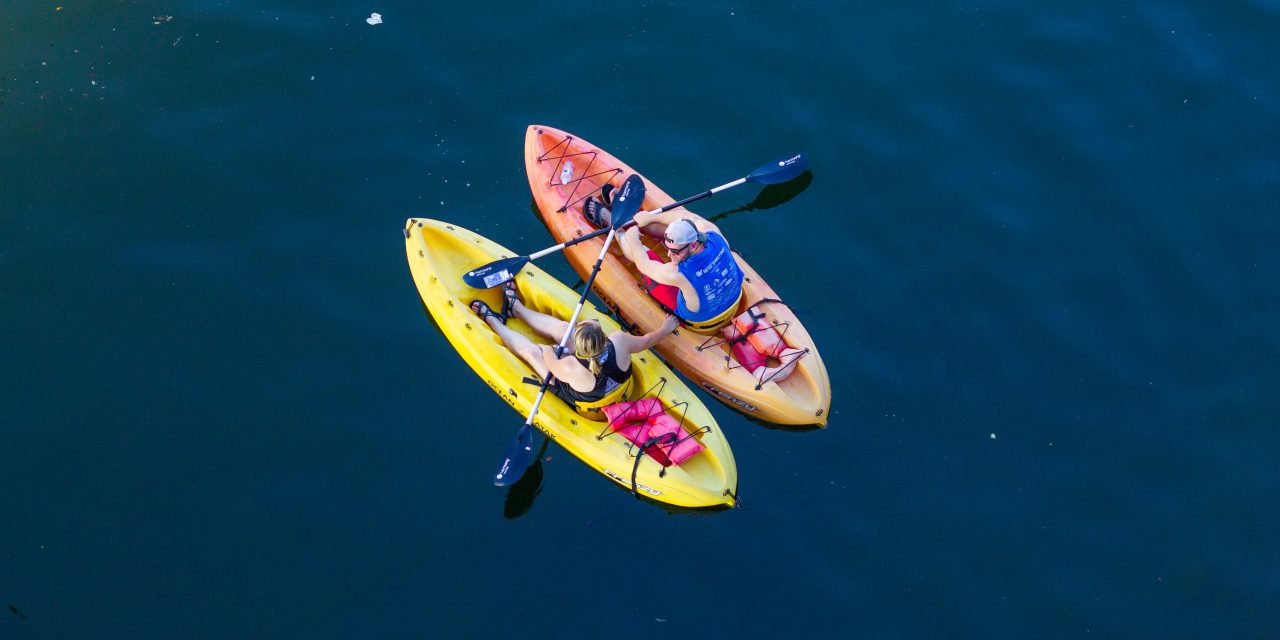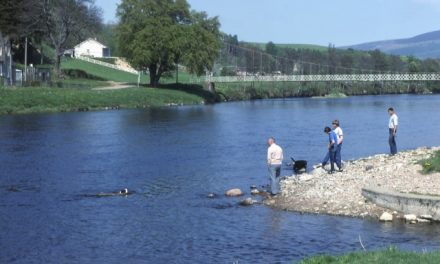Kayaking is an increasingly popular recreational activity in the UK, offering enthusiasts a unique way to explore the country’s scenic waterways, from tranquil canals to majestic rivers. However, before you launch your kayak, it’s important to understand the legal requirements surrounding its use. One common question among paddlers is whether a license is required for kayaking. In the UK, this depends on where you plan to paddle, as certain waterways are regulated by authorities that mandate licensing. This guide will explore the need for a kayak license in the UK, covering the rules, costs, exceptions, and benefits to ensure you paddle with confidence and compliance.
Understanding Kayak Licensing in the UK
In the UK, the requirement for a kayak license is determined by the type of waterway you plan to paddle on. Many rivers and canals are managed by authorities such as the Canal & River Trust, the Environment Agency, and other local bodies. These organizations require users to hold a valid license to access specific waterways. This is primarily to help maintain the water infrastructure, support conservation efforts, and ensure safety for all users.
A kayak license is typically not required for paddling on the open sea or along coastal areas, as these are not governed by inland waterway authorities. However, for canals, navigable rivers, and certain lakes, obtaining a license is often mandatory. Understanding these regulations is crucial for avoiding fines and ensuring compliance with local laws.
Key Authorities Governing Kayak Licenses
Several organizations oversee kayak licensing in the UK, each managing specific waterways. These are the key authorities to be aware of:
- Canal & River Trust: Responsible for over 2,000 miles of canals and navigable rivers in England and Wales.
- Environment Agency: Oversees navigable rivers in England, such as the Thames and the River Medway.
- Broads Authority: Manages the Norfolk and Suffolk Broads, requiring a special license for kayaking in these areas.
- Scottish Canals: Regulates canals in Scotland, such as the Caledonian Canal.
For most paddlers, a British Canoeing membership is a convenient way to cover licensing requirements. This membership includes access to a wide range of waterways managed by these authorities and offers other benefits for kayakers.
What Waterways Require a License?
In the UK, not all waterways require a license, but many inland waterways are regulated, and a license is mandatory for kayaking. The specific waterways that require a license are typically navigable rivers, canals, and some lakes managed by local or national authorities. These include popular paddling routes like the River Thames, Kennet and Avon Canal, and River Severn.
Waterways requiring a license are usually indicated by signage or are listed by the governing body responsible for their management. It’s always a good idea to check with local authorities or organizations like British Canoeing before planning your trip.
Rivers, Canals, and Other Navigable Waters
Here are the types of waterways that generally require a license in the UK:
- Canals: The majority of canals in England and Wales are managed by the Canal & River Trust, and paddlers must hold a valid license. Examples include:
- Grand Union Canal
- Leeds and Liverpool Canal
- Rivers: Many navigable rivers, such as the River Medway and the River Trent, require a license under the jurisdiction of the Environment Agency or local councils.
- Lakes and Reservoirs: While not as common, certain lakes and reservoirs may require permission or licensing if managed by private organizations or local authorities.
- The Norfolk and Suffolk Broads: This unique area is governed by the Broads Authority, which mandates a separate license for watercraft use.
For sea kayaking or paddling on tidal rivers, no license is required, as these are not under the control of inland navigation authorities.
How to Obtain a Kayak License in the UK
Getting a kayak license in the UK is a straightforward process, with multiple options available depending on the waterways you plan to use. The most convenient option for many paddlers is obtaining a license through a British Canoeing membership, which provides access to a wide range of waterways under the management of authorities such as the Canal & River Trust and the Environment Agency.
You can also purchase day, week, or annual licenses directly from the specific waterway authority if you only plan to paddle occasionally. The costs and application processes vary by authority, so it’s essential to check with the managing organization of your chosen waterway.
Costs and Procedures for Licensing
Here’s a breakdown of the typical process and costs associated with obtaining a kayak license in the UK:
- British Canoeing Membership:
- Cost: Approximately £45 annually for adults (discounted rates for families, juniors, and students).
- Coverage: Includes access to over 4,500 km of waterways managed by the Canal & River Trust, Environment Agency, and others.
- How to Apply: Visit the official British Canoeing website and sign up online.
- Direct Licenses from Authorities:
- Cost: Varies depending on the waterway and the duration (e.g., day, week, or annual passes).
- Examples:
- The Canal & River Trust offers a single-use or annual Waterways License.
- The Broads Authority issues separate licenses for the Norfolk and Suffolk Broads.
- Local Permits for Specific Waterways:
- Some private lakes, reservoirs, and rivers may require individual permits.
- Costs and procedures depend on the managing entity, so contacting them directly is necessary.
It’s worth noting that fines may apply if you’re found kayaking on regulated waterways without a valid license. To avoid this, ensure your paperwork is up to date before heading out.
Exceptions to Kayak Licensing Rules
While many waterways in the UK require a license, there are exceptions that allow paddlers to enjoy kayaking without needing to purchase one. These exceptions typically apply to certain natural water bodies, coastal areas, and private land where licensing regulations do not apply. Knowing where you can kayak license-free can save you time and money while still letting you explore the great outdoors.
Free-to-Use Waterways and Coastal Areas
Here are some of the most notable exceptions where you don’t need a kayak license in the UK:
- Coastal Areas and Open Sea:
- Kayaking on the sea or along the coast does not require a license in the UK. This includes tidal rivers and estuaries connected to the sea. Examples include:
- Dorset Coast
- Cornwall’s beaches and coves
- Scottish sea lochs
- Kayaking on the sea or along the coast does not require a license in the UK. This includes tidal rivers and estuaries connected to the sea. Examples include:
- Privately Owned Lakes and Rivers:
- Some lakes and rivers on private property may allow kayaking without a license, but you’ll usually need permission from the landowner. Always check before launching.
- Wild Rivers in Scotland:
- Scotland operates under the Scottish Outdoor Access Code, which allows responsible access to most inland waterways, including rivers and lochs, without a license. This makes Scotland an ideal destination for adventurous paddlers.
- Designated Free Access Areas:
- Some parts of the UK have waterways where licensing is not enforced. For example:
- Non-navigable rivers or smaller tributaries.
- Remote reservoirs or ponds not managed by any water authority.
- Some parts of the UK have waterways where licensing is not enforced. For example:
While these areas don’t require licensing, it’s still essential to follow safety guidelines, respect local wildlife, and ensure your kayak meets any local restrictions or regulations.
Consequences of Not Having a Kayak License
Paddling on regulated waterways without a valid kayak license can lead to penalties and other complications. In the UK, authorities take licensing seriously to ensure that waterways are maintained and that users contribute to their upkeep. Being caught without the necessary license could not only result in fines but also jeopardize access to waterways for other paddlers.
Understanding the consequences is crucial for ensuring a stress-free and enjoyable kayaking experience.
Fines and Legal Implications in the UK
Here’s what could happen if you’re found kayaking without a valid license:
- Fines and Penalties:
- Fines for kayaking without a license can range from £100 to £1,000, depending on the authority managing the waterway. For instance:
- The Environment Agency has the power to issue fines on navigable rivers like the Thames.
- The Canal & River Trust may charge penalty fees or fines for unlicensed use of its canals.
- Fines for kayaking without a license can range from £100 to £1,000, depending on the authority managing the waterway. For instance:
- Removal from the Waterway:
- Authorities have the right to ask paddlers to leave the waterway immediately if they don’t have a valid license. This could result in your trip being cut short.
- Damage to Reputation:
- Non-compliance can also affect the perception of paddlers as a group, potentially leading to stricter regulations or reduced access for everyone.
- Missed Opportunities:
- Without a license, paddlers miss out on access to some of the UK’s most beautiful and well-maintained waterways, which often have amenities like launch points and rest areas.
To avoid these issues, it’s highly recommended to obtain the necessary license or membership before kayaking. Additionally, always carry proof of your license while on the water, either digitally or as a printed copy, in case you’re approached by enforcement officials.
Benefits of Holding a Kayak License
Obtaining a kayak license in the UK offers more than just legal compliance—it provides a range of benefits that enhance your kayaking experience. From unlocking access to additional waterways to supporting the maintenance of these beautiful environments, a kayak license is a valuable investment for paddlers.
Access to More Waterways and Legal Security
Here are some of the top benefits of holding a kayak license:
- Expanded Access to Waterways:
- A kayak license or a British Canoeing membership allows you to paddle on over 4,500 km of waterways managed by organizations like the Canal & River Trust and Environment Agency. This includes iconic routes such as:
- The River Thames
- The Grand Union Canal
- The Norfolk Broads
- A kayak license or a British Canoeing membership allows you to paddle on over 4,500 km of waterways managed by organizations like the Canal & River Trust and Environment Agency. This includes iconic routes such as:
- Peace of Mind:
- Holding a license ensures that you comply with UK regulations, giving you the confidence to enjoy your kayaking trips without fear of fines or legal repercussions.
- Support for Waterway Maintenance:
- License fees contribute to the upkeep and conservation of rivers, canals, and lakes, ensuring that these areas remain safe and accessible for future generations.
- Additional Perks:
- If you opt for a British Canoeing membership, you may also benefit from extras like:
- Third-party liability insurance
- Discounts on kayaking equipment and gear
- Resources such as route guides and paddling events
- If you opt for a British Canoeing membership, you may also benefit from extras like:
- Promoting Responsible Paddling:
- Having a license shows that you’re committed to following local rules and regulations, setting an example for other paddlers and helping maintain positive relationships with waterway authorities.
Investing in a kayak license is not just about meeting legal requirements—it’s a way to enhance your paddling opportunities while contributing to the preservation of the UK’s waterways.
Conclusion
Kayaking in the UK offers unparalleled opportunities to explore beautiful waterways, from serene canals to majestic rivers. However, understanding whether you need a license is essential to ensure a hassle-free experience. For most inland waterways, including canals and navigable rivers, a kayak license is required, which can be easily obtained through a British Canoeing membership or directly from local authorities. Exceptions, such as coastal areas and Scotland’s wild rivers, allow paddlers to enjoy kayaking without a license.
Holding a kayak license not only ensures legal compliance but also supports waterway maintenance and opens up access to a vast network of waterways. By understanding the licensing rules and their benefits, you can paddle with confidence, knowing you’re both protecting the environment and enjoying your kayaking adventures to the fullest.





